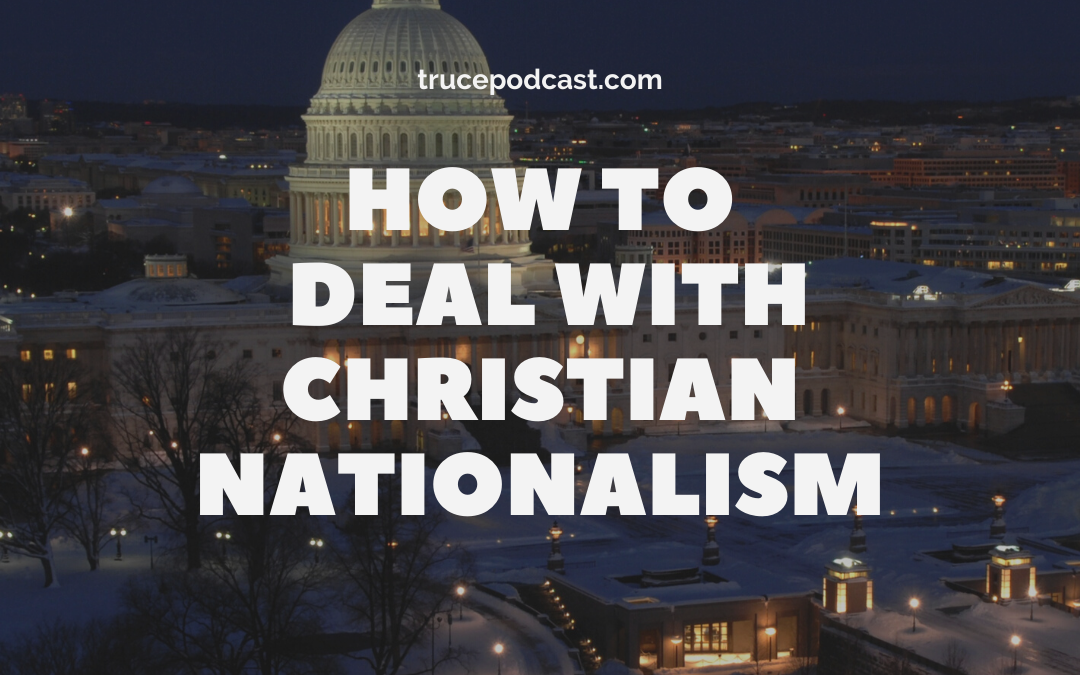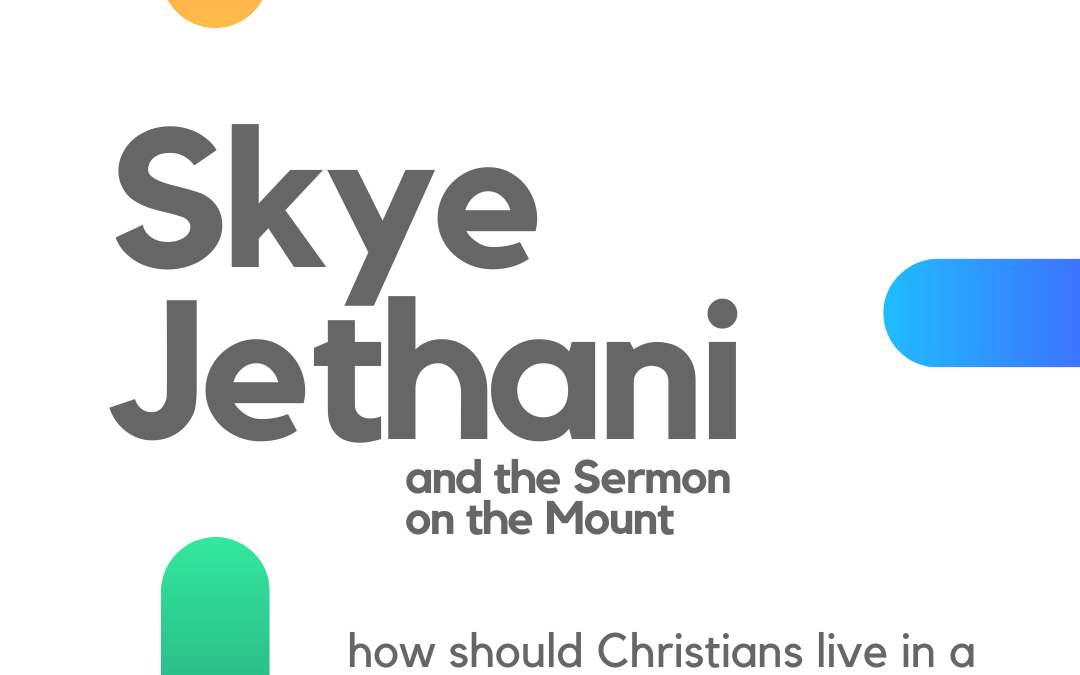
by Chris Staron | Mar 30, 2021 | Episodes
It’s time for American Christians to rethink the past. Can nostalgia for part of the past impact our witness?
MAGA folks look back on the history of the United States and see a golden era: the 1950s. When religion was in the public eye, television and movies were clean, and father came home from work with dinner hot on the table. The trouble is that this vision of the 1950s only existed in our imaginations or if we chose to ignore the world around us. The 1950s were an era of great upheaval, with public monuments to religion being erected at the same time as heavy censorship, McCarthyism, wars, racism, and sexism.
For the next few weeks we’ll be revisiting themes from season three of Truce to pull out some important takeaway. Takeaway 1: Think Deeper About the Past.
Helpful links:
Discussion Questions:
- What do you think of when you think of the 1950s?
- When is it okay to remember just part of history, and when do we need to consider the whole picture?
- What era do people who wear MAGA hats want to return to? In other words, when was America greater than it is now?
- When you think of your own childhood, what comes to mind?
- Do world or social issues play into that?
- How is nostalgia a helpful tool?
- How can nostalgia shape our memory of the past?
- Is there an era you wish to return to?
- What can we do to create a fuller picture of the past when we retell it?

by Chris Staron | Mar 16, 2021 | Episodes
Christian Nationalism, QAnon, and conspiracy theories are in most churches. How should we react?
The January 6, 2021 riot at the US Capitol demonstrated the dangers of extreme Christian nationalism. When we allow our ideas about God and His protection to overrun the Bible, we get into serious trouble. Now, many Christians are questioning their faith. Why does the Jesus of the Bible look so different from us and our country?
In this episode, Chris discusses our strange relationship with the United States. We love it when it affirms us, but we don’t know what to do when the US behaves in an evil manner. How do we unify the Church in an era of division?
Helpful Discussion Questions:
- How have you seen the United States tied to Christianity?
- What do you think people mean when they say the US is a Christian nation?
- When have you seen the US behave in a Christian manner?
- When have you seen it wander from Christian principles?
- Do you follow the Jesus of the Sermon on the Mount, or an economic Jesus?
- How can you love people in your local church who believe different things about Jesus than you do?
Helpful links:
- You can learn more about the Virginia Law Codes in Rebecca Cox Richardson’s book “How the South Won the Civil War”.
- In the episode, I reference that the US provided rebels in Afghanistan with copies of the Koran and VHS bootlegs of the movie “Rambo”. You can learn about that in Steve Coll’s book, “Ghost Wars” pages 90 and 194-197.
- Learn about John Adam’s day of fasting
- The Treaty of Tripoli
- More about Dalton Trumbo
- “Trumbo” movie trailer

by Chris Staron | Mar 2, 2021 | Episodes
How should Christians react in a post-Christian society?
Many theologians describe our modern era as being post-Christian. Meaning that religion was once public in the United States, and it is slowly disappearing. Is that okay? Is it possible that now is a great time to be doing ministry?
In this episode Chris interviews pastor/ author/ podcaster Skye Jethani. He’s the author of the book “What if Jesus was Serious?” and co-host of The Holy Post podcast with Phil Vischer. Skye’s wisdom for this time helps Christians put today in perspective.
Discussion Questions:
- What is meant by the term “post-Christian”?
- Do you think we’re living in a post-Christian world?
- How do our environment and culture impact Jesus’ words in the Sermon on the Mount?
- What does it mean to love our neighbors? Turn the other cheek?
- Do you agree with Skye when he says that we are to obey our leaders, and yet we are the leaders in the US?
- If so, how does that impact how you live and work?
- Have you ever lived in an environment that was non-Christian? How does that differ from a culturally Christian area? Was it easier to do ministry in one over another?



